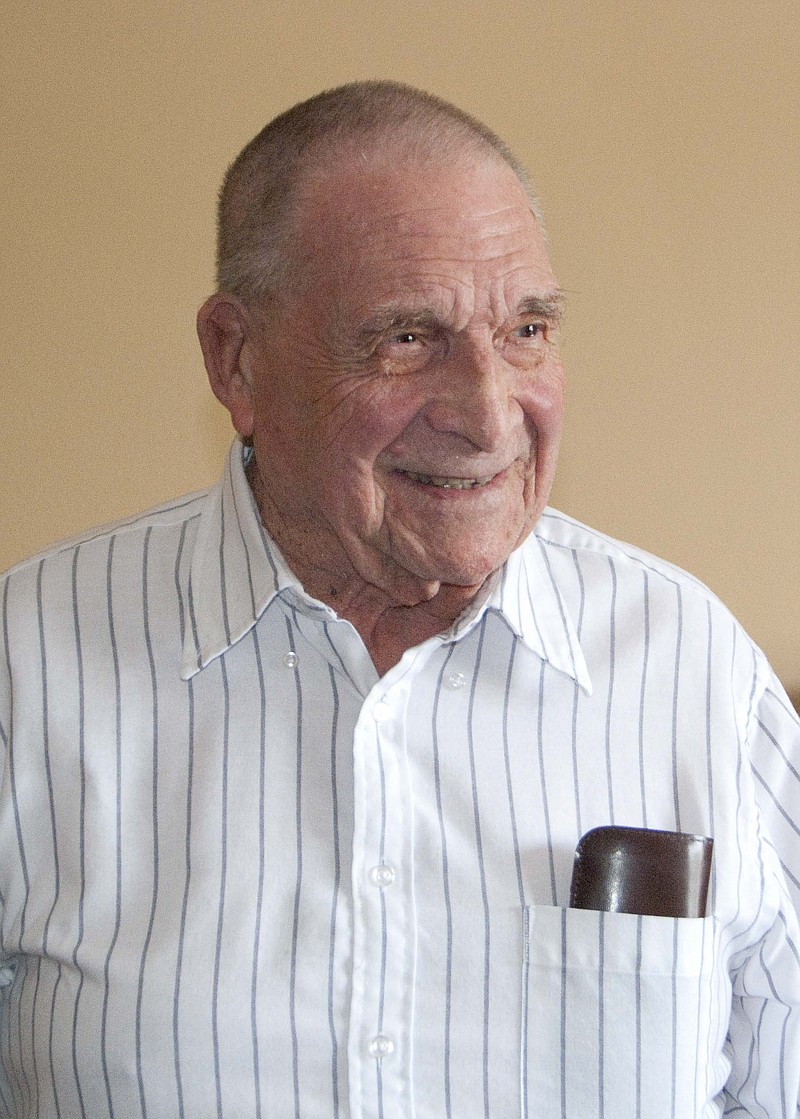It has been more than seven decades since local veteran Leonard Knoernschild took his oath of enlistment during the Second World War, and since that time, many of the specific dates associated with his service have faded from the forefront of his memory.
Yet to this day, the overall recollection of his time spent in naval service remains as poignant as the point at which they first occurred.
"I don't really remember the dates," said Knoernschild, 90, Jefferson City, "but those just aren't that important to me anymore."
What is enduring, however, is the impact his voluntary service during an important moment in the nation's history had on his educational pursuits.
A native of the St. Louis area, Knoernschild moved to Augusta to work on his family's farm after his graduation from high school in 1940.
At that time, as the veteran described, the wheels of the war effort began spinning forward at full speed and many young men from the community were either drafted or volunteered for military service.
"I had a (farm) deferment and a lot of folks began to razz me about it - they said that my parents didn't need me on the farm."
Unfazed by the taunting, Knoernschild maintained his commitment to his family, but when his deferment expired a short time later, he decided to answer the nation's call to arms and visited his local recruiting office, not once questioning what branch of service would be his best fit.
With a smile, Knoernschild said, "My younger brother had been in the Navy, so that's what I decided to do, too."
After completing boot camp in Idaho, he traveled to Hawaii for radar school, which, he jokingly maintains, was the training assigned to him because the Navy believed he "had brains enough to do something."
While in training, the young recruit learned all aspects of radar operation including the procedures for tracking and plotting both friendly and enemy aircraft.
His land-based training soon ended when he traveled to the West Coast for his initial duty assignment aboard the USS Bataan - a cruiser that had been converted into an aircraft carrier.
During the first six months of his assignment, Knoernschild worked in the ship's radar room as the ship patrolled the islands off the coast of Japan. During its operations, the ship would launch F4U Corsairs to perform numerous bombing missions.
"I was with the ship in Tokyo Bay when the Japanese surrendered (in September 1945)," he recalled.
Following the end of the war, the ship was sent back to the United States where it underwent a rapid transformation resulting in the gutting of the hangar deck and the installation of "row after row of bunk beds."
For the next few weeks, Knoernschild said, the ship became a transport vessel used to move Italian prisoners of war held in the states back to Italy, and then bring American troops back to the states.
In summer of 1946, the young sailor returned to Missouri having completed his military commitment and married his girlfriend, Dorothy, the following year. He attended the University of Missouri on the GI Bill graduating with a bachelor's degree in agriculture.
Employing his recent education and pre-war experience, Knoernschild rented a small farm near Chesterfield, and in late 1950s, purchased his own farm near Sedalia, which his grandson now farms.
He later left farming when he was hired as a federal employee with the Soil Conservation Service and assigned as a district conservationist in Franklin County, retiring from the agency after 20 years.
In later years, following the passing of his wife, Knoernschild relocated to Jefferson City to be closer to his daughter after experiencing mobility issues related to hip surgeries.
Despite these health concerns, the World War II veteran laughingly beamed, "I'm still here and that's beyond my expectations."
Though the veteran recalls many profound moments that occurred during his wartime service, there is one outcome that seems to remain entrenched in his memory.
"The GI Bill, by far, had the biggest impact on me because it helped send me to school," he asserted. "Had it not been for that, I would likely never have been able to attend."
Jeremy P. Amick writes veteran-related articles on behalf of the Silver Star Families of America.

